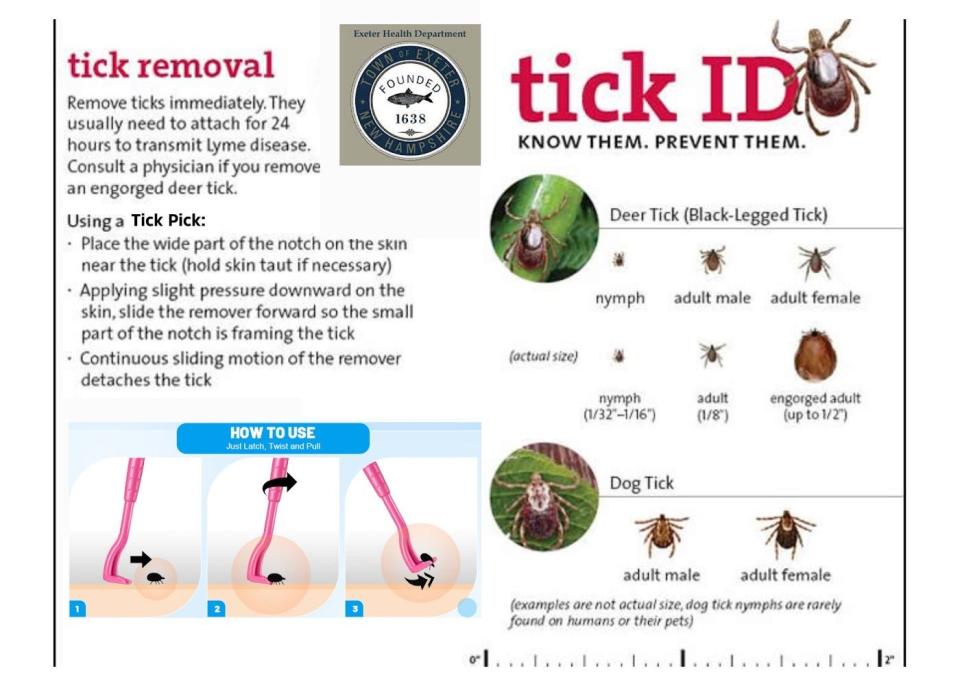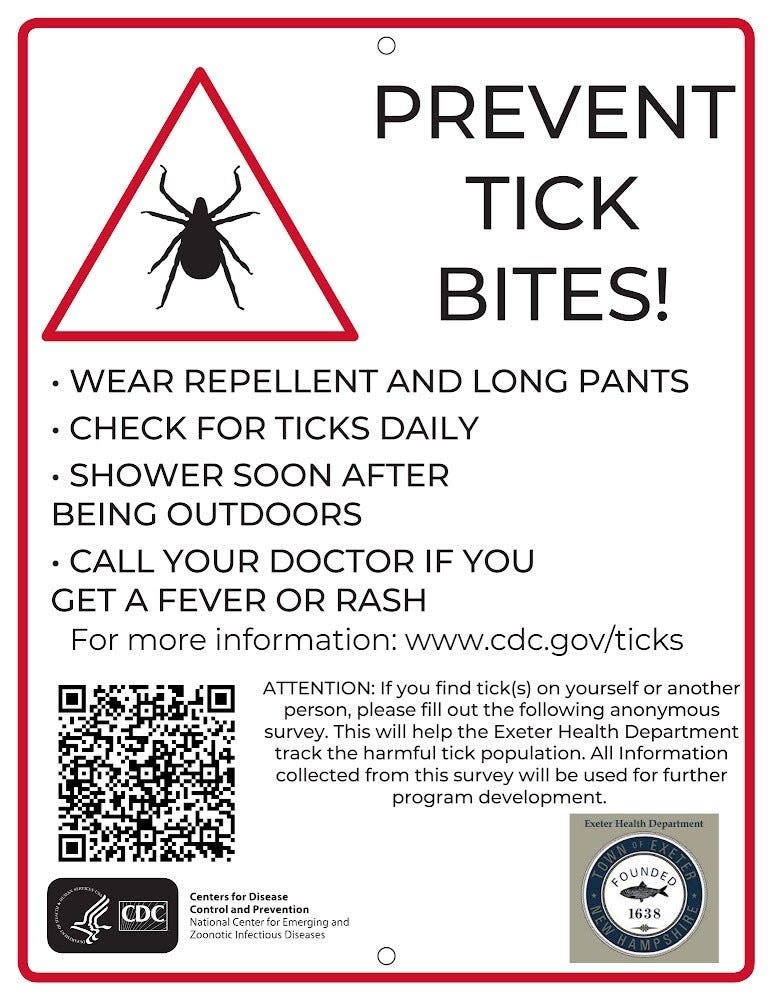Tick alert: Exeter rolls out prevention program amid early season surge
EXETER — Spring has finally arrived, and believe it or not, so have those pesky and potentially dangerous ticks. A combination of warmer temperatures and lack of snow cover this winter has allowed for an early start to tick season in Exeter.
With the threat of tick-borne diseases like Lyme disease on the rise during the spring and summer months when ticks are typically the most active, the Exeter Health Department has announced plans to launch a tick prevention program aimed at reducing the risk of infection this season.
According to Health Officer Madison Bailey, the program will be rolled out in two phases. The first phase will run from April 1 to June 1 and will involve the placement of warning signs at various outdoor venues, including recreational trails, parks, sports fields, and other popular outdoor spaces where ticks may be more prevalent.

A QR code with a link to a self-reporting survey will be included on each sign to allow people who may have found a tick on themselves to report it and the location where they believe they came into contact with it. The information from the anonymous survey will be used to track tick populations and determine hot spots in town, which will help guide future prevention materials for phase two and measure the progress toward achieving the program’s goals.
Bailey pointed out that some of the highest rates of Lyme disease in New Hampshire are found in Rockingham County.
“It’s not something you think about every time you walk into the woods, but I would really encourage people to take as many precautions as they can,” said Bailey, whose role as health officer is to protect and educate the public about non-communicable and infectious diseases. “This community is very big on going outdoors, walking outside, and taking advantage of all the things the town has to offer, and unfortunately that can put people more at risk.”

In addition to the warning signs, the Health Department will also be making “tick picks” and instructions available for free to the public at the Exeter Town Offices at 10 Front St. The small device can be used to safely remove ticks from a person or pet.
Through her research, Bailey has found that many people can still develop Lyme disease if they don’t remove a tick correctly. She said the use of a “tick pick” will ensure that the removal process is effective.
“I thought that providing people with the proper tools, instead of just using tweezers or fingers, would be a better way to prevent Lyme disease. Unfortunately, many people don’t know they have Lyme disease until a few months down the line,” she said.
Bailey stressed the importance of removing a tick within 30 hours of exposure to reduce the risk of disease transmission.
The following are some precautions that can be taken to prevent infection:
Keep lawns mowed to prevent grass from becoming too tall.
Cut down brush and tall grass at the edge of the lawn.
Wear long pants and tuck into socks when weather allows, especially when spending time in fields or tall grass.
Walk in the middle of trails.
Use EPA-registered insect repellent.
Always perform tick checks on yourself, children, and pets after being outside – check hotspots like under the arms and belly button area.
Treat clothing and gear with 0.5% Permethrin, but don’t use it on the skin.
Place tick tubes, which have cotton balls soaked in Permethrin, around your home to kill ticks.
Call a doctor if you experience a fever or rash.
Shower soon after being outdoors.
For more information on ticks, visit https://www.cdc.gov/ticks/index.html.
Anyone with additional questions or concerns should contact Exeter Health Officer Madison Bailey at 603-773-6132 or by email at mbailey@exeternh.gov.
This article originally appeared on Portsmouth Herald: Exeter rolls out tick prevention program amid early season surge

